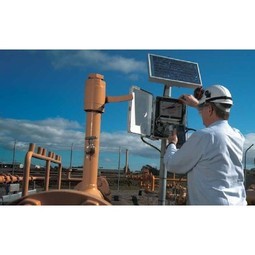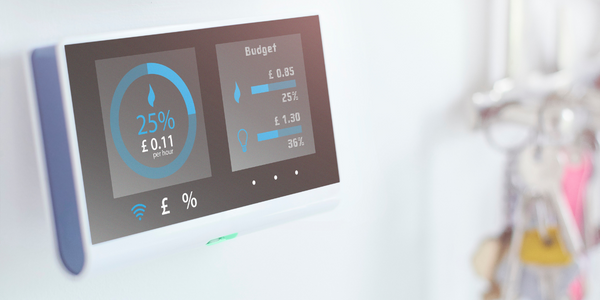公司规模
Large Corporate
地区
- America
国家
- United States
产品
- Oracle Utilities Billing Component
技术栈
- Oracle
实施规模
- Enterprise-wide Deployment
影响指标
- Productivity Improvements
- Cost Savings
技术
- 功能应用 - 企业资源规划系统 (ERP)
适用行业
- 公用事业
适用功能
- 离散制造
- 采购
用例
- 能源管理系统
- 需求计划与预测
服务
- 软件设计与工程服务
- 系统集成
关于客户
杜克能源是美国最大的电力控股公司,为大约 700 万零售客户提供能源供应和配送服务。杜克能源总部位于北卡罗来纳州夏洛特,在北美和拉丁美洲运营资产,总服务区域超过 10 万平方英里。作为其业务的一部分,杜克能源为俄亥俄州和肯塔基州约 50 万客户提供天然气输送和配送服务。为了确保安全高效地向这些州的家庭和企业供应天然气,并管理与供应商的复杂定价、计费和天然气配送安排,杜克能源依赖于天然气运输管理系统 (GTMS)。
挑战
杜克能源是美国最大的电力控股公司,为俄亥俄州和肯塔基州约 50 万客户提供天然气输送和配送服务。为了确保安全高效地向这些州的家庭和企业供应天然气,并管理与供应商的复杂定价、计费和天然气交付安排,杜克能源依赖于天然气运输管理系统 (GTMS)。多年来,杜克能源一直使用 Oracle 公用事业计费组件软件来支持 GTMS。当公司现有的 Oracle 解决方案版本不再受支持时,杜克能源知道它需要迅速采取行动升级到较新的版本。由于运营限制,该公司面临着严格的实施时间表。由于天然气需求通常在 11 月至 3 月之间达到高峰,即所谓的“供暖季节”,因此实施必须在这些月份之外完成,以最大限度地减少对业务的干扰。
解决方案
在决定升级到 Oracle 公用事业计费组件 1.6 版后,杜克能源开始寻找能够熟练部署 Oracle 解决方案并执行必要定制以使软件适应公司独特需求的合作伙伴。经过竞争性招标程序,杜克能源选择了 IBM 全球商业服务部来管理实施。在 IBM 全球商业服务部的协助下,杜克能源对核心 Oracle 公用事业计费组件解决方案进行了大量定制。由于许多外部方使用 GTMS,项目团队增强了应用程序,使外部用户能够安全地访问系统。杜克能源还推出了一项预测功能,使用户能够预测客户在某一天可能使用多少天然气,从而帮助公司更好地规划天然气供应和交付活动。升级后的 GTMS 由新的 Oracle 公用事业计费组件支持,于 2014 年 4 月推出,目前约有 300 人定期访问,其中大多数是外部用户,包括第三方供应商和大型天然气运输客户。
运营影响

Case Study missing?
Start adding your own!
Register with your work email and create a new case study profile for your business.
相关案例.

Case Study
IoT Solutions for Smart City | Internet of Things Case Study
There were several challenges faced: It is challenging to build an appliance that can withstand a wide range of voltage fluctuations from as low at 90v to as high as 320v. Since the device would be installed in remote locations, its resilience was of paramount importance. The device would have to deal with poor network coverage and have the ability to store and re-transmit data if networks were not available, which is often the case in rural India. The device could store up to 30 days of data.

Case Study
Automation of the Oguz-Gabala-Baku water pipeline, Azerbaijan
The Oguz-Gabala-Baku water pipeline project dates back to plans from the 1970’s. Baku’s growth was historically driven by the booming oil industry and required the import of drinking water from outside of the city. Before the construction of the pipeline, some 60 percent of the city’s households received water for only a few hours daily. After completion of the project, 75 percent of the two million Baku residents are now served around the clock with potable water, based on World Health Organization (WHO) standards. The 262-kilometer pipeline requires no pumping station, but uses the altitude differences between the Caucasian mountains and the capital to supply 432,000 m³/d to the Ceyranbatan water reservoir. To the people of Baku, the pipeline is “the most important project not only in 2010, but of the last 20 years.”

Case Study
GPRS Mobile Network for Smart Metering
Around the world, the electricity supply industry is turning to ‘smart’ meters to lower costs, reduce emissions and improve the management of customer supplies. Smart meters collect detailed consumption information and using this feedback consumers can better understand their energy usage which in turn enables them to modify their consumption to save money and help to cut carbon emissions. A smart meter can be defined in many ways, but generally includes an element of two-way communication between the household meter and the utility provider to efficiently collect detailed energy usage data. Some implementations include consumer feedback beyond the energy bill to include online web data, SMS text messages or an information display in consumers’ premises. Providing a cost-effective, reliable communications mechanism is one of the most challenging aspects of a smart meter implementation. In New Zealand, the utilities have embraced smart metering and designed cost effective ways for it to be implemented. The New Zealand government has encouraged such a move to smart metering by ensuring the energy legislation is consistent with the delivery of benefits to the consumer while allowing innovation in this area. On the ground, AMS is a leader in the deployment of smart metering and associated services. Several of New Zealand’s energy retailers were looking for smart metering services for their residential and small business customers which will eventually account for over 500,000 meters when the multi-year national deployment program is concluded. To respond to these requirements, AMS needed to put together a solution that included data communications between each meter and the central data collection point and the solution proposed by Vodafone satisfied that requirement.

Case Study
NB-IoT connected smart meters to improve gas metering in Shenzhen
Shenzhen Gas has a large fleet of existing gas meters, which are installed in a variety of hard to reach locations, such as indoors and underground, meaning that existing communications networks have struggled to maintain connectivity with all meters. The meter success rate is low, data transmissions are so far unstable and power consumption is too high. Against this background, Shenzhen Gas, China Telecom, Huawei, and Goldcard have jointly trialed NB-IoT gas meters to try and solve some of the challenges that the industry faces with today’s smart gas meters.

Case Study
OneWireless Enabled Performance Guarantee Test
Tata Power's power generation equipment OEMs (M/s BHEL) is required to provide all of the instrumentation and measurement devices for conducting performance guarantee and performance evaluation tests. M/s BHEL faced a number of specific challenges in conducting PG tests: employing high-accuracy digital communications for instrumentation, shortening setup and dismantling time, reducing hardware required, making portable instrument setup, avoiding temporary cabling work and the material waste costs

Case Study
British Gas Modernizes its Operations with Innovative Smart Metering Deployment
The UK government has mandated that smart meters are rolled out as standard across Great Britain by end of 2020, and this roll-out is estimated to create £14 billion in net benefits to the UK in consumer energy savings and lower energy generation demand, according to the Oxford Economics report, “The Value of Smart Metering to Great Britain.” While smart-metering systems have been deployed in many countries, the roll-out in Great Britain is unique because it is led by energy retailers, who have responsibility for the Electricity and Gas meters. The decision to have a retailer-led roll out was made by DECC (Department of Energy and Climate Change) to improve customer experience and drive consumer benefits. It has also led to some unique system-level requirements to support the unique local regulatory model.



